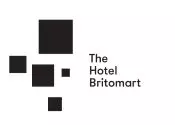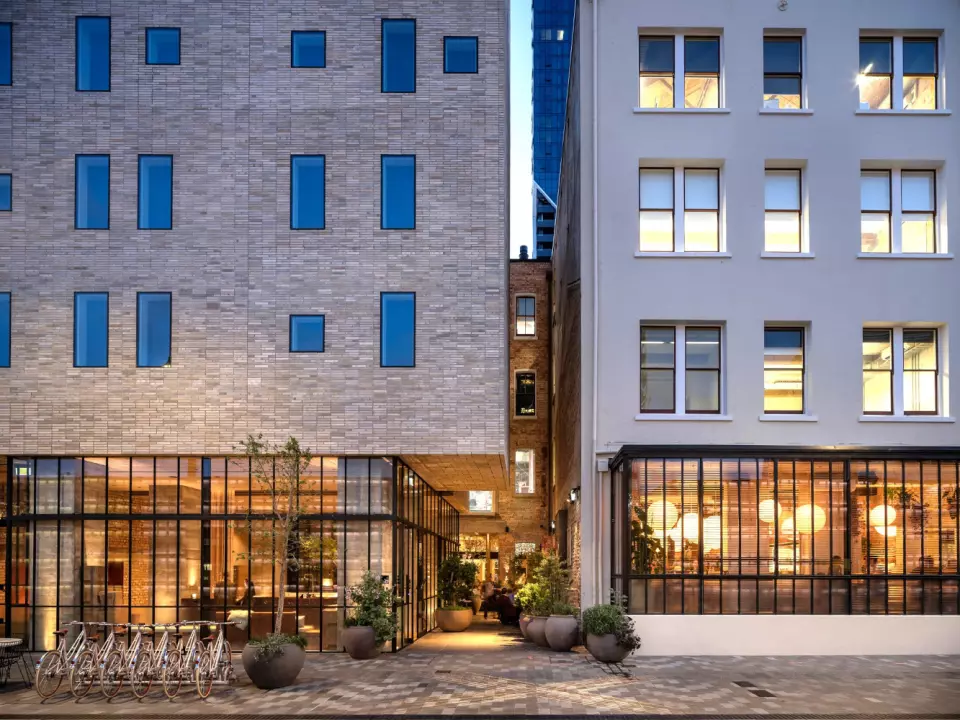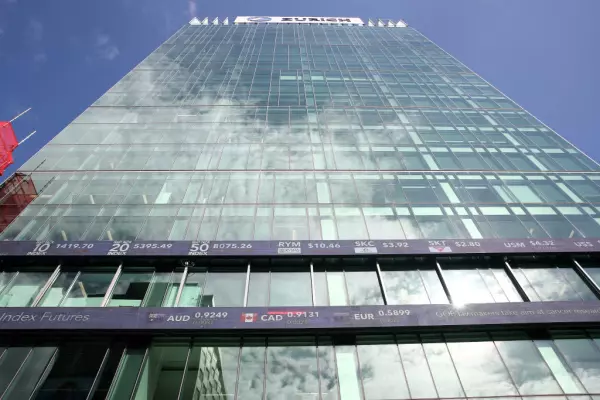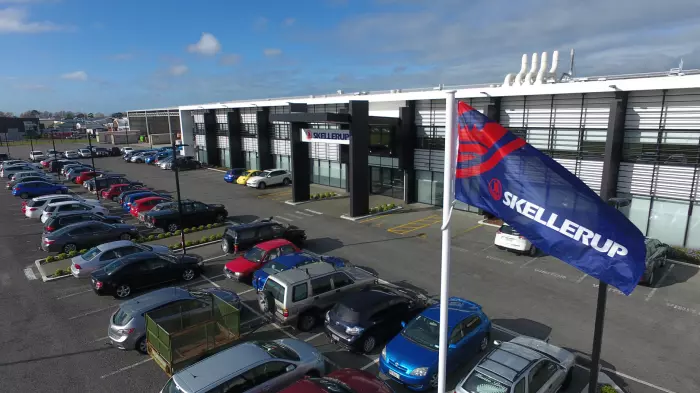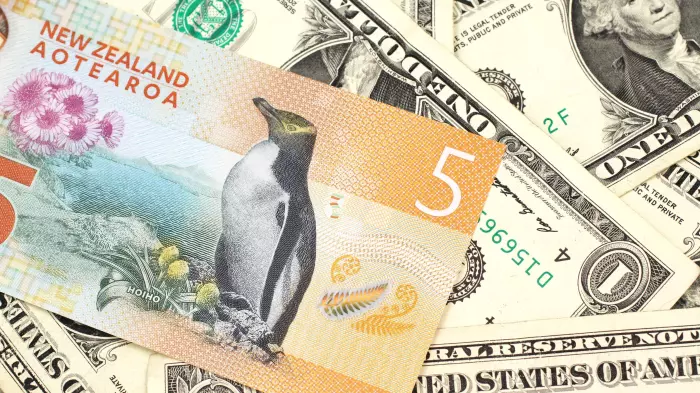An immersive regenerative travel experience for visitors.
Auckland’s The Hotel Britomart is setting up a new form of tourism for its guests, catering for the growing number of travellers concerned about people-positive travel, forging deeper human connections, as well as considering the environmental and social impacts of their travel.
Connecting with local communities, learning about local cultures, and harnessing authentic experiences are all key for travellers now, says the hotel’s General Manager, Clinton Farley – and the hotel’s unique experience will allow guests to engage in a half day immersive conservation activity at a native forest farm during their stay.
It will be a modest contribution to offset the carbon emissions from their travel, fostering a sense of community engagement, environmental responsibility, and enriching knowledge and experiences for guests. In doing so, it contributes to a broader awareness and commitment to sustainable practices.
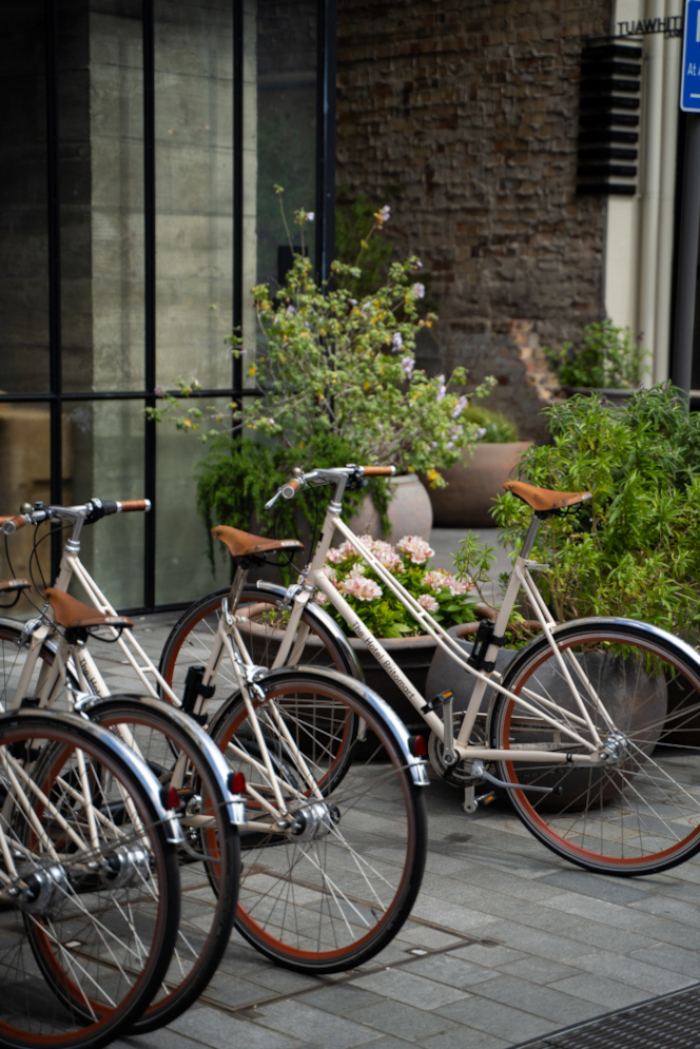 The hotel is New Zealand’s first 5 Green Star-rated hotel and is exploring opportunities for guests to visit a native forest farm (Velskov, with 10 acres of native regenerating forest), located about 30km west of the Auckland CBD near the small settlement of Huia on the Manukau Harbour.
The hotel is New Zealand’s first 5 Green Star-rated hotel and is exploring opportunities for guests to visit a native forest farm (Velskov, with 10 acres of native regenerating forest), located about 30km west of the Auckland CBD near the small settlement of Huia on the Manukau Harbour.
“The purpose is to educate guests about the importance of regenerating New Zealand forests,” says Farley. “Hopefully they will gain a better understanding of this and take that knowledge back home.
“They’ll not only get a chance to plant a tree themselves but engage in forest cuisine, learning about traditional Māori herbs and plants, as well as local customs – and they’ll travel there in an electric-powered van.”
Farley says the concept - called regenerative travel - is a response to a growing trend among travellers and tourists who, aware of the impact their travel has on the environment, are looking for hotels to stay where they can be involved and contribute towards the local community.
“Hotels and our wider tourism industry have an important part to play in sustainability and regenerative travel is an important space for us. We see it as an opportunity to help our guests learn more about sustainability and give back in a small way to the communities they are visiting.”
“Many are conscious of issues around sustainability and the carbon impact of travelling and are considering how they can offset that, whether it be through environmental or social good,” he says. “Being located at the bottom of the globe makes it a particular challenge for us in New Zealand because of the transport miles it takes to get here and the carbon emissions associated with that.”
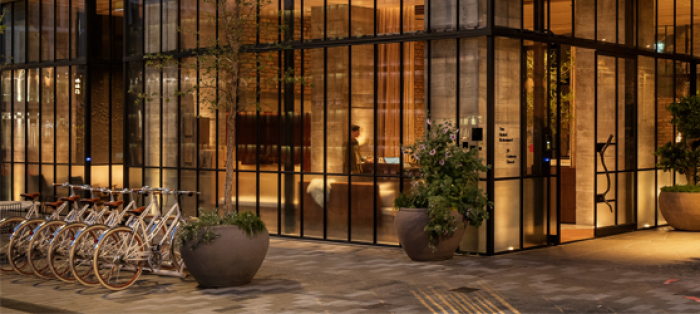
With the launch scheduled for mid-year, Farley says there may be other sustainable and regenerative options for guests as well. “We have charities we partner with, so it may be about looking at some of those organisations and whether guests could get involved in their community impact or environmental work while staying with us.”
Regenerative travel is one part of The Hotel Britomart’s sustainability story. Rated 5 Star Green by the New Zealand Green Building Council following its opening in 2020, the hotel has been designed to incorporate many sustainable principles such as energy-efficient buildings, natural light utilisation and eco-friendly materials.
But, Farley says, it’s not just about the build: “It’s as much about an ongoing journey so that every aspect of design, architecture, procurement, operations and local impact contribute to creating a truly sustainable business.
“The first accreditation (Green Star rating) was because of our design and construction, but this now flows through to the day-to-day operations, how we’re managing energy, water, waste streams and overall business efficiencies to reduce our impact.”
As well as the native forest farm visit, the hotel has introduced another sustainable meetings programme in which a native tree will be planted at The Landing - the hotel’s sister property in the Bay of Islands - for every 10 guests who take part in a meeting or conference at The Hotel Britomart. Over the last year this has further extended to a native tree planted for every guest stay that chooses a “green clean”, light-service of their room.
Last year 1200 trees were planted and the hotel team expects this number to significantly increase in the years ahead.
“Online figures suggest that once established, trees absorb on average 20-25kg of carbon a year, meaning this year’s planting will absorb between 22 and 27.5 tonnes of carbon,” Farley says.
The area of land set aside for this project has a stream running through it and was converted to pasture decades ago. The planting will return cover and stability to the stream area and allow native species to return and flourish, while keeping grazing stock away from the waterway.
The Hotel Britomart is also an accredited Toitū carbon reduction business. To maintain this status, the hotel is required to show year-on-year reduction in carbon emissions, for which they monitor monthly.
In other sustainable moves, the hotel aims to continue the reduction of single-use plastics and has established a relationship with a new rental car company with a good supply of electric vehicles (EVs). These are recommended in the first instance to hotel guests as are EV taxis through another relationship.
Farley says other global initiatives likely to hit our shore in the next few years will be self-drive EV vehicles or air taxis: “I think we’ll also see more sustainable energy sources such as solar and wind installations as we head towards our national goals (the government’s goal of net zero greenhouse gas emissions by 2050) and there may be more emerging technologies in the virtual reality space which will challenge the industry in new ways.”
For more information go to: thehotelbritomart.com


